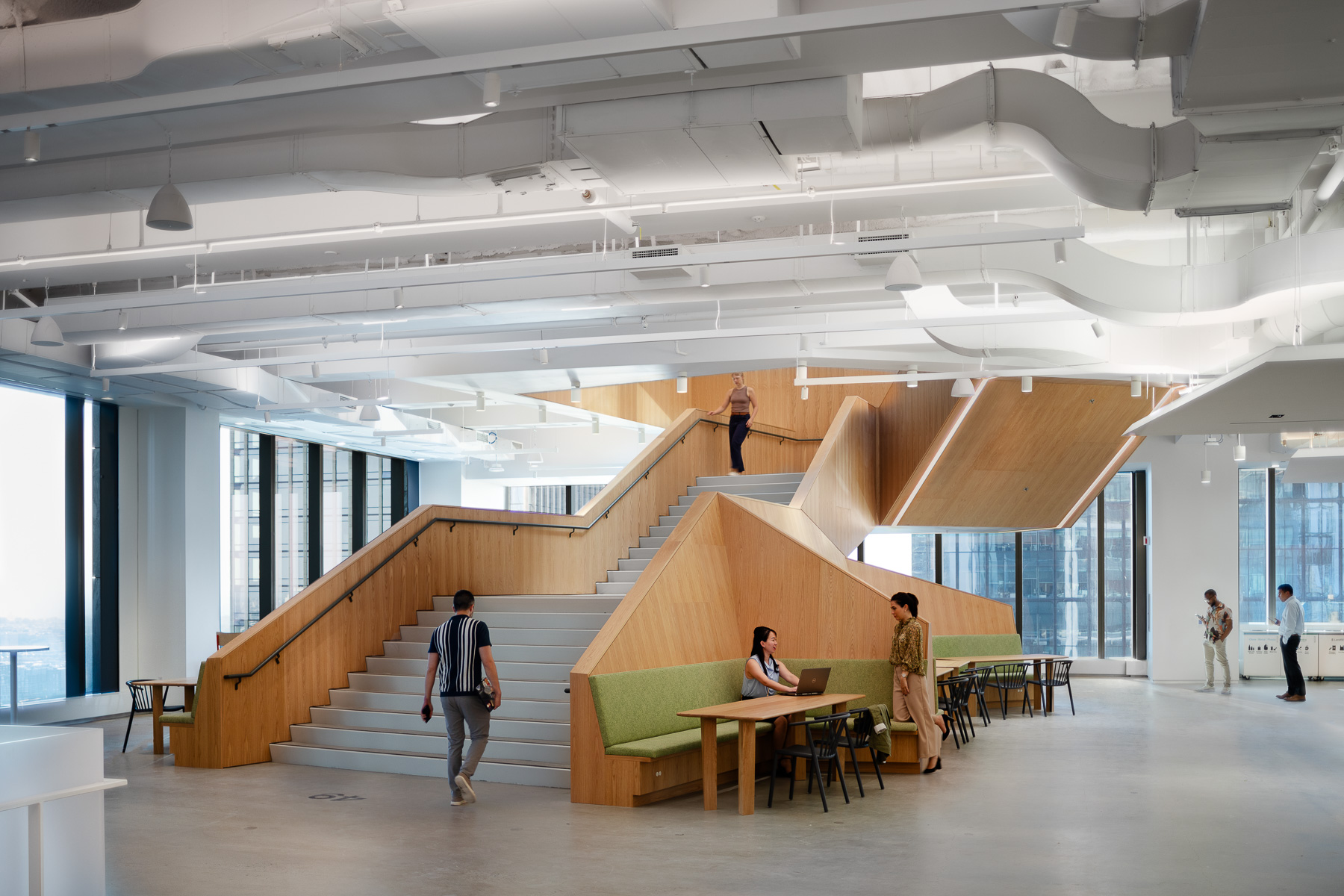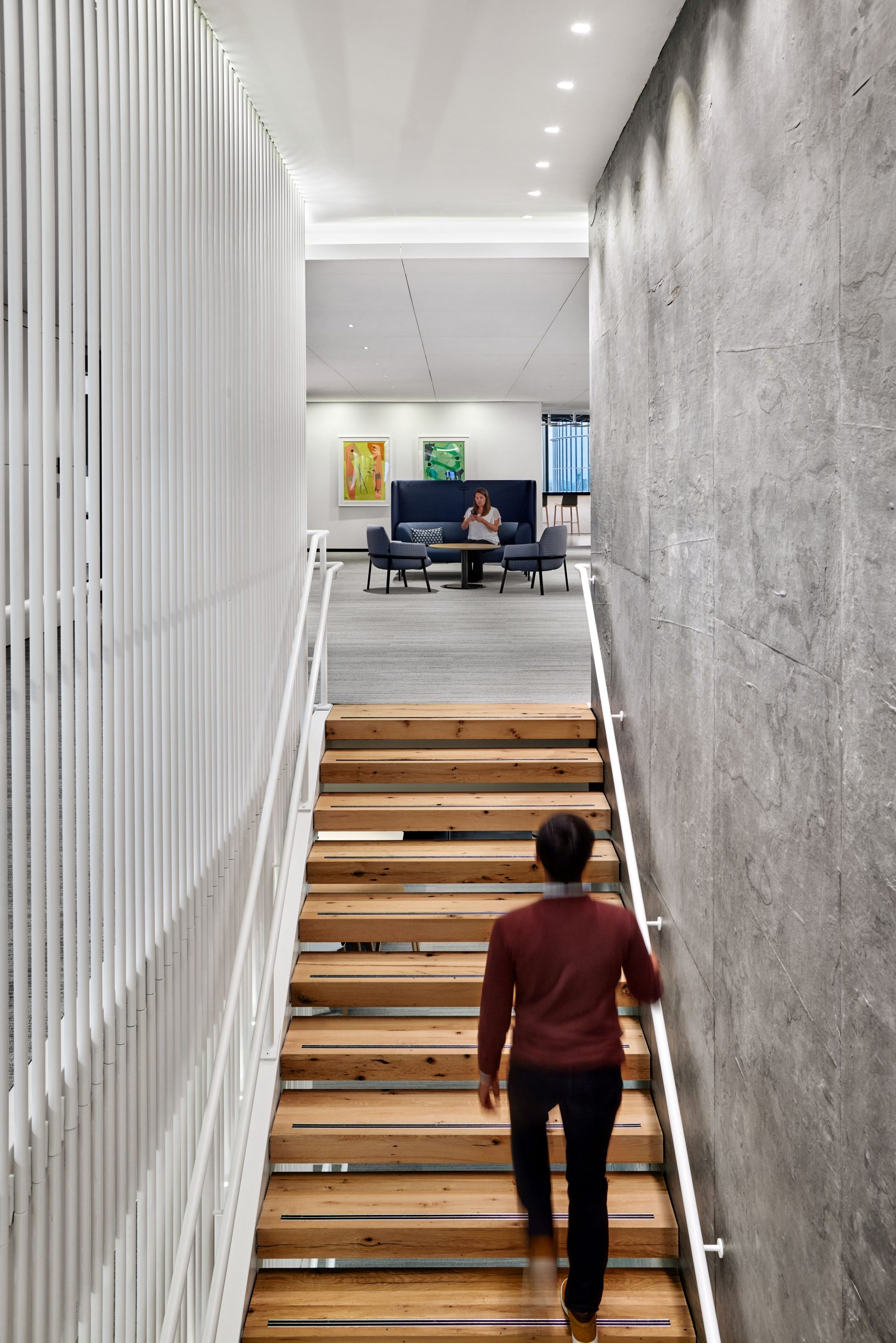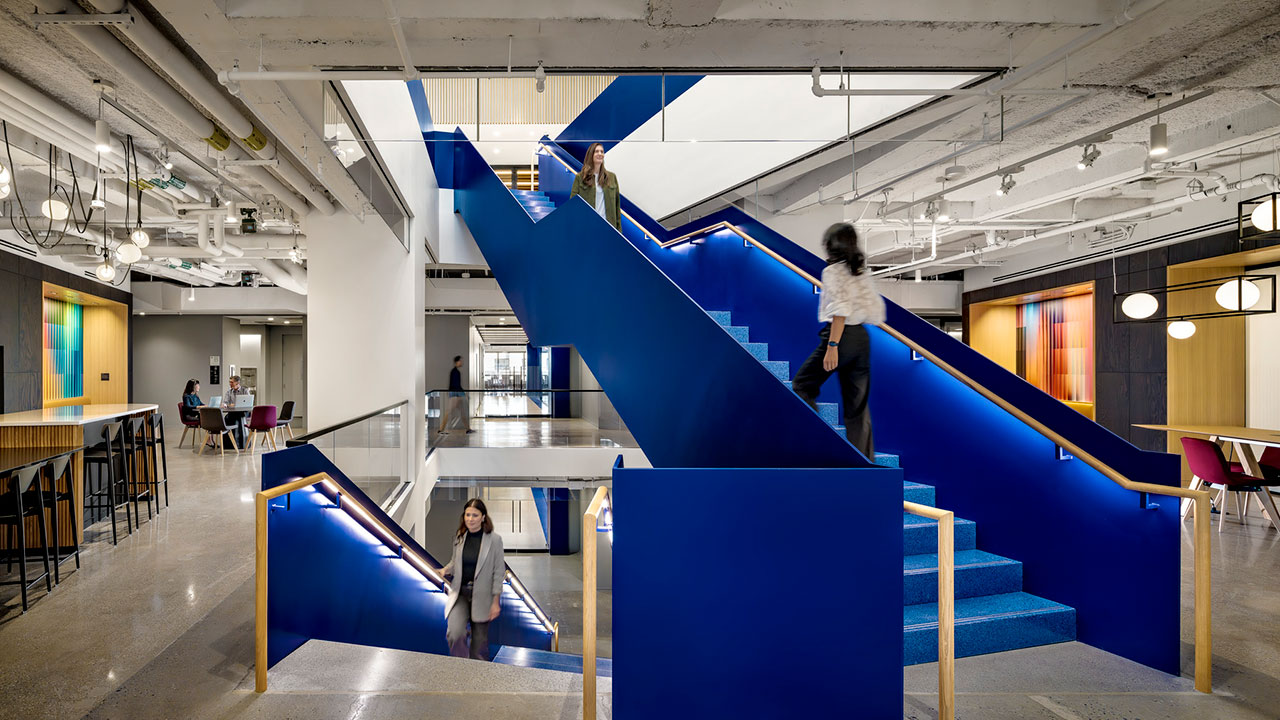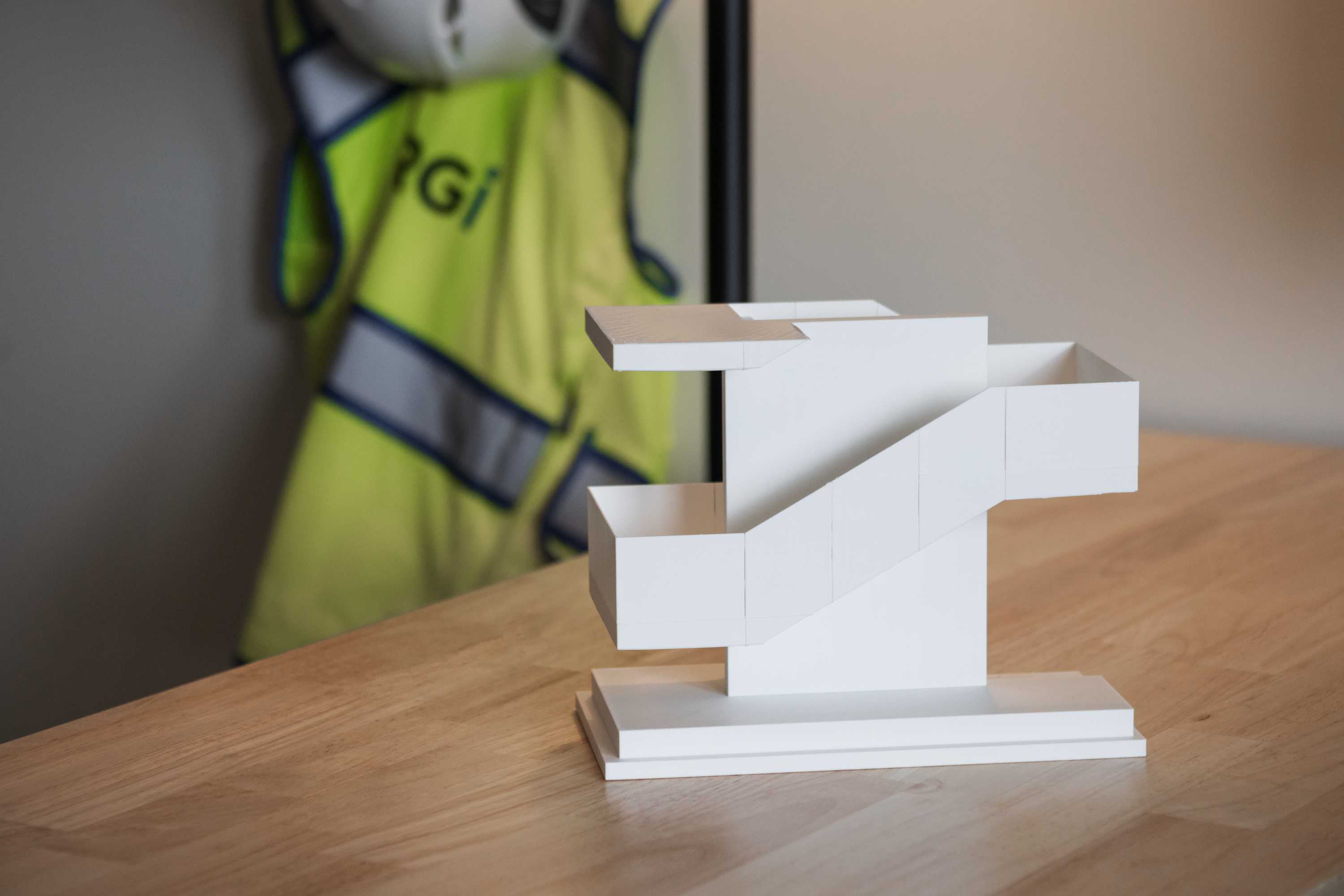General
Take the Stairs, Clear Your Mind: A Simple Step Toward Mental Wellness
In recognition of Mental Health Awareness Month, Synergi explores how stair use supports mental well-being—and why it deserves a central role in building design.

Looking for a simple way to boost brain power and improve overall health—without scheduling a gym session? The answer might be closer than you think. Stairs offer more than just a way to get from point A to point B. Choosing to take the stairs throughout the day not only supports physical health but also plays a meaningful role in enhancing mental well-being.
During Mental Health Awareness Month, we’re reminded of the importance of making intentional choices that prioritize mental wellness. One of the most accessible and overlooked opportunities? Incorporating stair use into our daily routines.
THE SCIENCE BEHIND STAIR USE AND MENTAL HEALTH
In today’s fast-paced world, prolonged periods of sitting and high levels of stress are common—especially in office environments. Taking regular movement breaks, like climbing stairs, provides both physical and psychological benefits. A growing body of research supports what many intuitively know: even short bouts of moderate activity can significantly impact mood, focus, and cognitive performance.
A study published in the Journal of Cognitive Enhancement found that short bursts of stair climbing—just a few minutes at a time—can increase energy and enhance mental performance. Most notably, participants performed better on cognitive switching tasks after using the stairs. These tasks measure a person’s ability to shift attention between different rules, tasks, or mental demands—key indicators of executive function and cognitive flexibility.
Why does this matter? In the workplace, cognitive flexibility is essential for handling shifting priorities, solving problems, and staying mentally agile throughout the day. Encouraging stair use in office settings can help employees return to their desks more focused, alert, and ready to tackle complex tasks—turning a simple movement into a measurable productivity boost.
By reframing stairs as a wellness tool rather than just a structural element, organizations can make a meaningful impact on both employee mental health and performance.

Synergi’s Interconnecting Stairs at Capital One Headquarters in Tysons, Virginia
1. Stress Relief, One Step at a Time
Climbing stairs is a cardiovascular activity that triggers the release of endorphins—our body’s natural mood boosters. Taking a few minutes to step away from your desk and move can act as a mini reset, reducing tension and restoring focus. Integrating short stair breaks into the workday offers a natural, drug-free way to manage stress and refresh your mind.
2. Sharper Thinking Through Movement
Physical activity increases blood flow to the brain, which can enhance cognitive functions like memory, attention, and learning. Choosing stairs over elevators encourages this kind of consistent, beneficial movement—improving clarity and productivity over time.
2. A Natural Mood Enhancer
Stair climbing doesn’t just support physical fitness—it helps fight depression and anxiety. The repetitive movement and focus required can have a grounding, almost meditative effect. As a form of active mindfulness, stair use promotes emotional balance and resilience, particularly during demanding days.
4. Better Sleep, Better Days
Quality sleep is closely linked to mental health. Regular physical activity like stair climbing helps regulate sleep cycles, making it easier to fall asleep and stay asleep. Better rest translates to better mental function, lower stress, and improved mood throughout the day.

Synergi’s Interconnecting Stairs at IBM Headquarters in New York City
DESIGNING FOR WELLNESS: WHY STAIRS MATTER
At Synergi, we believe in creating spaces that promote both movement and mental well-being. Prioritizing stair design within buildings—through visibility, accessibility, and aesthetic appeal—can encourage daily use. When stairs are more inviting than elevators, they become a natural part of healthy routines.
Promoting stair use isn’t just a design decision; it’s a public health strategy. As we recognize Mental Health Awareness Month, let’s reimagine the humble staircase as a tool for wellness—one step at a time.

Synergi Welcomes Kevin Smith as Vice President of Engineering & Detailing
